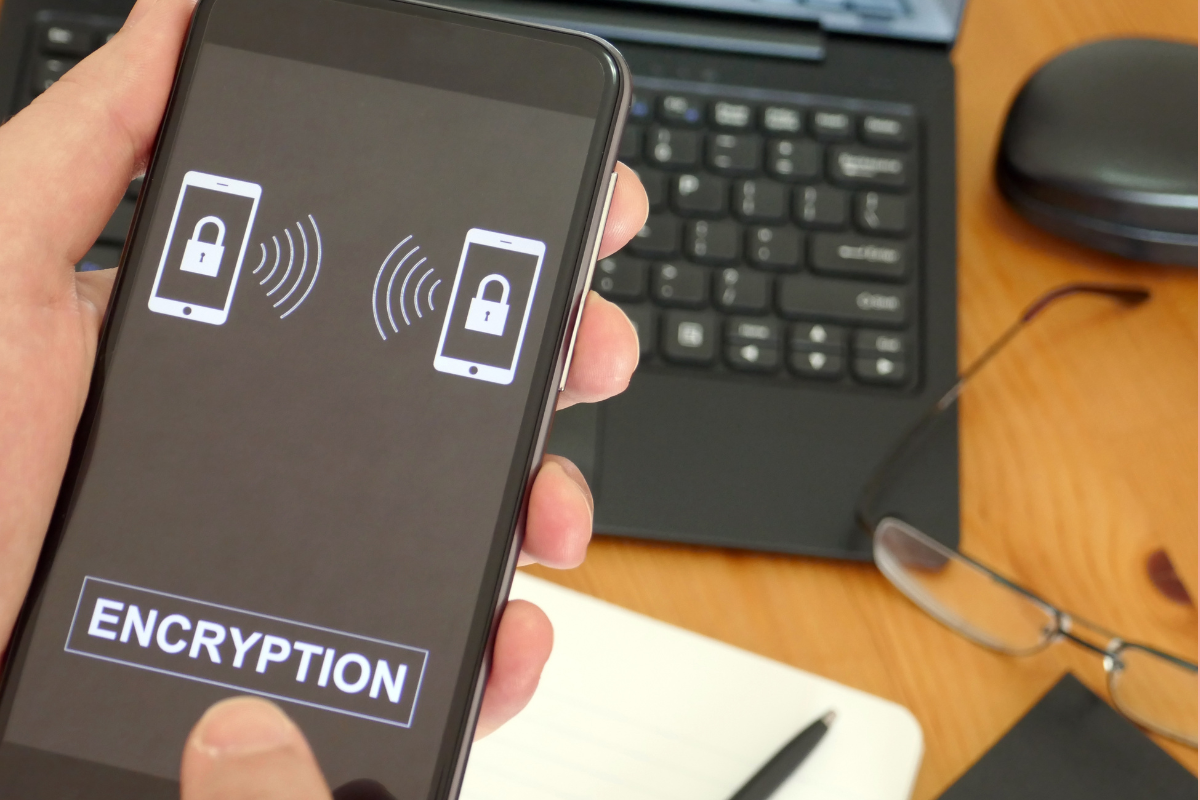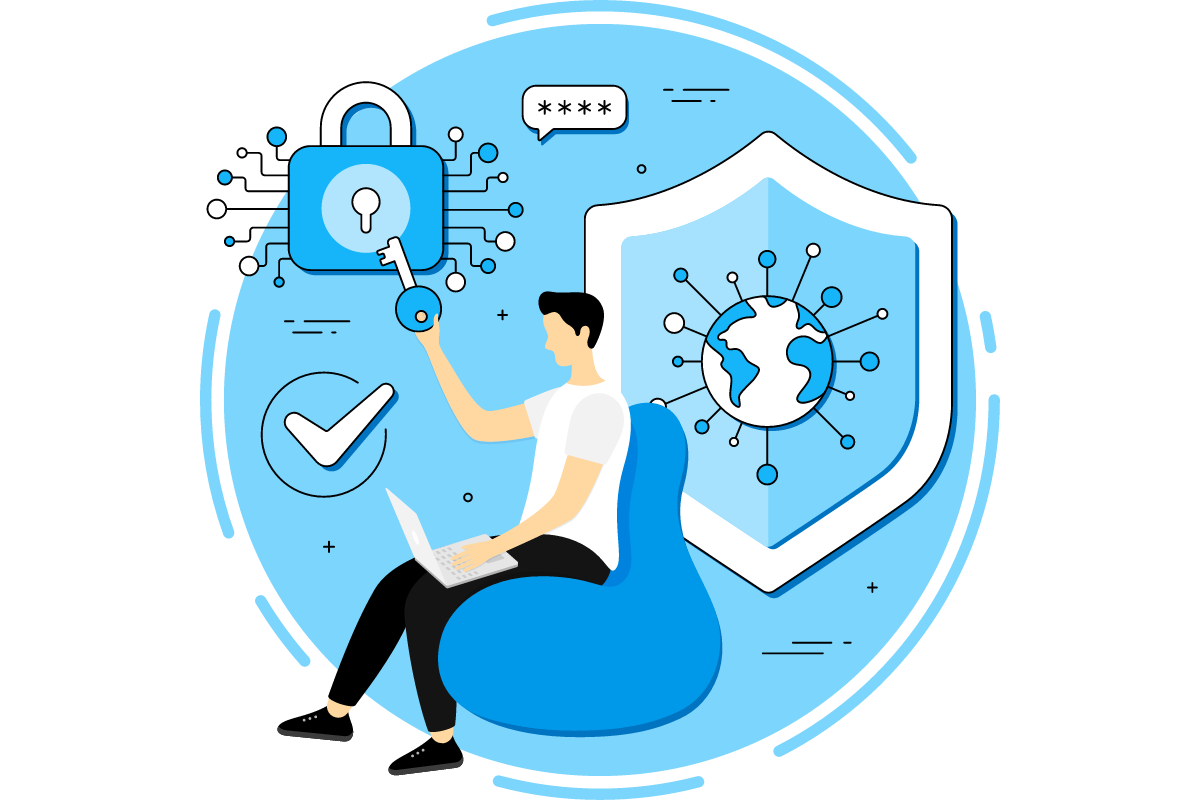Having digital privacy was never more important than today when privacy concerns, data breaches, and political debates over internet rights are crucial theme’s right now.
Whether you’re just a casual internet user, maybe a freelance journalist, or a digital nomad, your online privacy is always at risk.
Virtual Private Network (VPN) is a lethal weapon in the war for digital safety. This article talks about features of a VPN covering their origins to their abilities increasing online privacy.
The Basics: What Is A VPN?
A VPN is fundamentally a service that enables you to connect securely to another network over the internet.
The data travelling between your device and the server is encrypted and protected from prying eyes thanks to this protective tunnel.
VPNs were initially designed for businesses to securely connect remote data centres.
However, with the exponential rise in cyber threats and increasing concerns about online privacy, they’ve become essential tools for individual users as well.

Why Do You Actually Need A VPN?
- Online Privacy: One of the primary uses of VPNs is to ensure your online actions remain confidential. With a VPN, your internet service provider (ISP), hackers, or even government entities can’t easily track your online activities.
- Bypass Geo-Restrictions: As we’ve touched on previously, VPNs allow you to access content unavailable in your region. Whether it’s streaming services or censored news websites, VPNs ensure you remain globally connected.
- Public Wi-Fi Security: Using public Wi-Fi networks, such those found in airports or coffee shops, has significant security risks. A VPN safeguards your information from potential network attackers by encrypting your connection.
Analyzing The Technology
How is such a high level of security maintained by a VPN?
Tunnelling: Think of your internet connection as an open highway, where anyone with the right tools can observe your actions.
A VPN acts as a private, encrypted tunnel on that highway, ensuring only you know what’s happening inside.
Encryption: Data that is transmitted over a VPN is encrypted. This implies that even if the data is intercepted, someone would need the decryption key to decipher it.
Alright, let’s break it down. When you hop on a VPN server, your IP address gets swapped out with the server’s own IP.
It’s like wearing an online disguise – hiding your true identity and making it look as though you’re surfing from somewhere else entirely.
Not only does this keep your digital fingerprint under wraps, but it also gives off the illusion that you’re checking out stuff from a different corner of the world altogether!
VPN Pricing: Getting The Bang For Your Buck
A cursory online search will reveal a plethora of VPN providers, each with varied features and pricing structures.
So how do you decide which one offers the best value? Here are some factors to consider about VPN pricing:
- Duration of Subscription: Many VPN providers offer significant discounts for longer subscription terms. While a monthly subscription might seem attractive, an annual or biennial subscription often brings down the monthly cost substantially.
- Server Locations: If getting around geo-restrictions is your main objective, be sure the VPN service has a wide range of server locations. You may now easily get data from a variety of sources.
- Speed and Bandwidth: Premium VPN services invest in infrastructure to ensure high-speed connections and unlimited bandwidth. Look for providers that don’t throttle your speed or cap your data.
- Privacy Policies: When it comes to privacy, not all VPNs are created equally. Make sure that the service providers you choose strictly adhere to the no-log policy and don’t keep any records of your internet actions.
Risks And Considerations
While VPNs provide enhanced security and privacy, they aren’t without their potential pitfalls:

Alright, here’s the deal: your privacy is only as safe as where your VPN provider calls home.
Some countries are tight on data storage rules and others buddy up in global spy games. So, before you pick a VPN service, do some homework.
Potential for Malicious VPNs: Unfortunately, there are a number of VPN services out there that could be used for immoral purposes like selling your data or showing dangerous advertisements. It is crucial to choose service providers with reputable histories and open policies.
Latency Issues: When using a VPN, your internet connection may occasionally become slower, especially if the server is far away. Choose companies with a reputation for being prompt and dependable.
Final Words
We’re living in a digital world that’s always changing, and it impacts how we live, work, and talk to each other. But this constant online life also makes us feel more exposed.
Every click or search leaves behind data which can be misused – it’s like walking on thin ice! On one hand the internet has opened up information for everyone but on the flip side it’s made us targets of privacy breaches.
That’s where VPNs come into play – they are not just tech solutions; they symbolise our right to keep our personal lives private while being online.
When you use a VPN, you’re taking control of your own story online while keeping your personal info safe.
But don’t think all responsibility lies with technology alone. We’ve got to be careful too – remember knowledge is power! While tools like VPNs provide protection against threats lurking around every corner online, staying informed about these risks and regularly updating software plays an equally crucial role in maintaining cyber safety.
The thing is though…not all VPNs are created equal. There’s stuff like server locations, speed tests and their privacy policies that influence whether or not you should trust them so doing some homework before choosing one wouldn’t hurt!
In conclusion then: yes there are challenges when navigating the digital space but there’s also plenty of ways we can overcome them by using things like a solid VPN service .
It might take some vigilance but armed with good tools we can make sure our internet journey remains safe as houses!
Ella Marcotte
Latest posts by Ella Marcotte (see all)
- UA vs GA4: The 4 Big Differences You Need To Know - April 26, 2024
- Understanding The Role Of Control Valves In Industrial Automation - April 8, 2024
- How Automation Can Boost Your Business Outcomes - April 4, 2024




